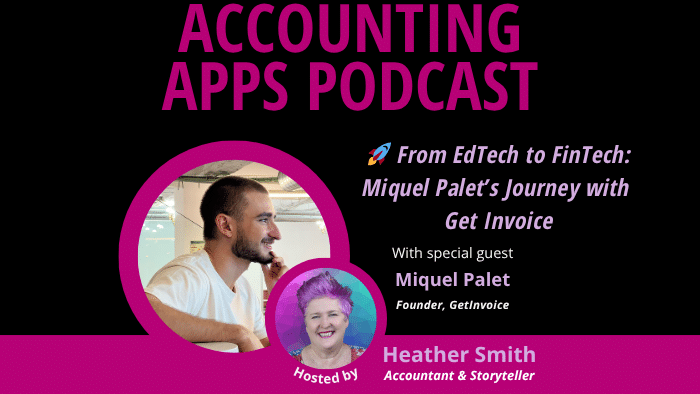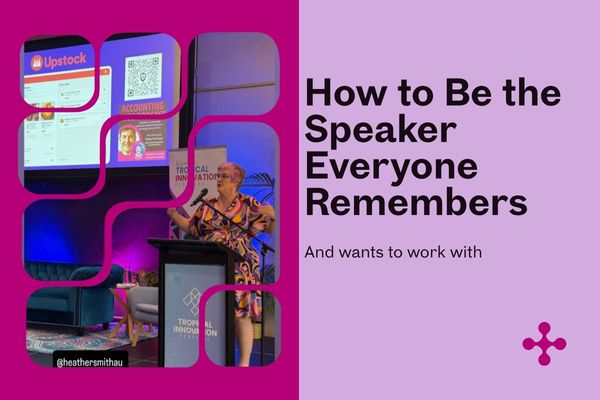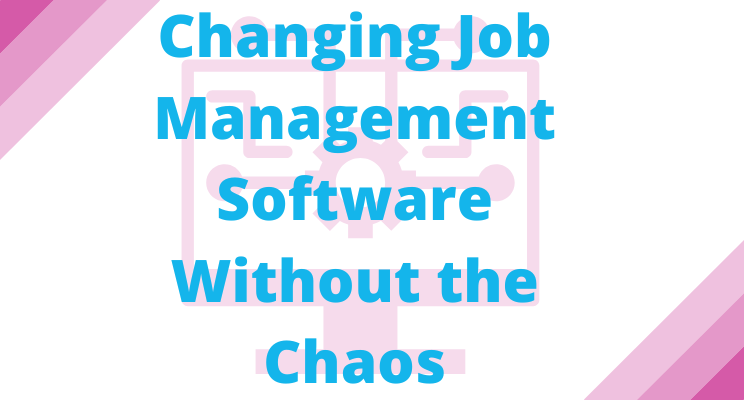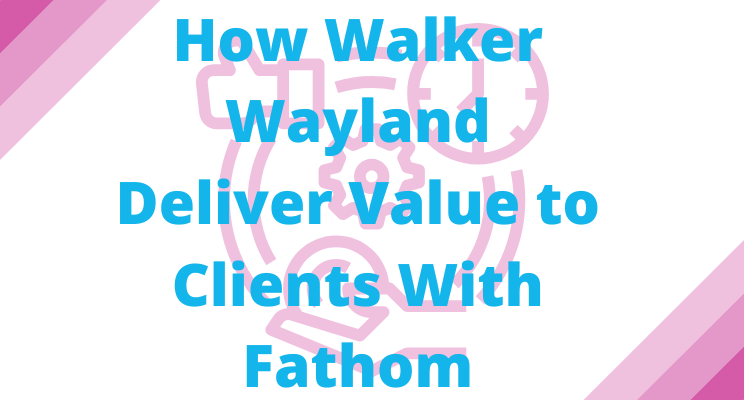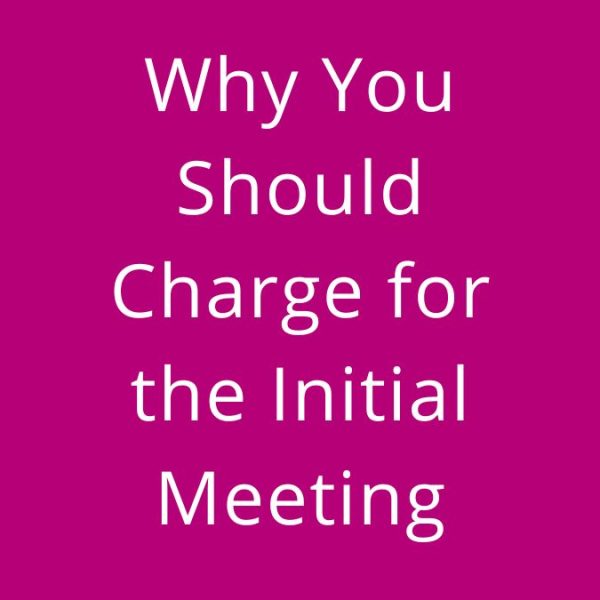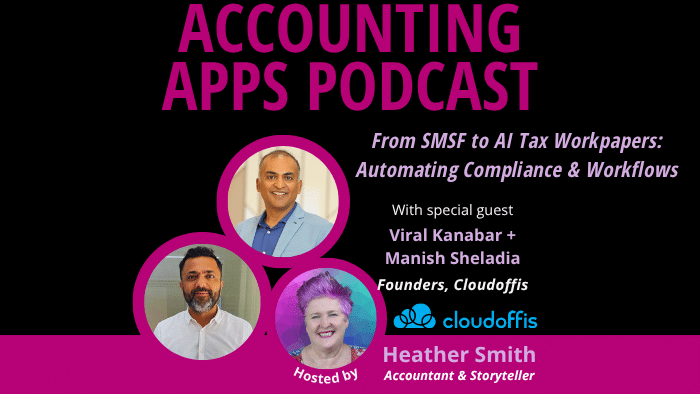I’m at #WCOA2018, and here with Dean Martin National Business Development Manager from PayVu.
Dean, can you tell us a bit about what PayVu does?
Dean Martin: What we do is automate and securitize the payment process bookkeepers and accountants to make all payments for their clients.
Heather Smith: Mm-hmm (affirmative). And …
How do you securitize PayVu?
Dean Martin: So the typical process at the moment for bookkeepers to make payments for their clients involves exporting files from secure systems like Xero or Quickbooks, or MYOB. What we do is remove the need to export ABA files out of secure system, gone are the days when you need to save or know your clients banking details, or put their employees data, personal and private information at risk by taking out of secure system. Why buy a safe, like your accounting system, and put your diamonds, your personal and private information about a business, outside of that system? That’s the problem that we solve. The accounting systems and the banking systems and ourselves spend multi-millions of dollars each year to make sure that this data’s safe. The average bookkeeper, accountant doesn’t have that budget and doesn’t have that sort of facility to make that easy. We deliver that. So we already do this sort of thing for large companies, large multi … large big floor accounting systems and banks and superannuation systems. What we’re doing is bringing that level of automation of security to people and their account.
Heather Smith:
Does it matter which bank I’m with?
Dean Martin: So at the moment … great question … at the moment we are integrated with the four majors, and its the Pareto principle there, we get 80% per cent of the market.
Heather Smith: So here in Australia that’s CBA, ANZ, NAB and Suncorp?
Dean Martin: Westpac.
Heather Smith: Westpac, Westpac. So the four banks. Okay so they are the four banks I work with, and who am I paying? Am I paying you or the banks?
Dean Martin: What happens at the moment is that if I’m a bookkeeper or accountant I make payments for my businesses or for my clients. I use multiple systems. We give you a single process and a single app.
Heather Smith: Ah yeah.
Dean Martin: So don’t worry if it’s QuickBooks or MYOB or Xero and don’t worry if it’s NAB, as long as it’s those those systems, you have one application, you do everything in there to execute the payments.
Heather Smith: And
Who does the initial payment sign-off in PayVu?
Dean Martin: As a recommender … because the bookkeeper or the accountant recommends payments and the authorizer … so we’ve got separations of duties.
Heather Smith: Ah okay.
Dean Martin: The authorizer is the business owner. So think of it, think of PayVu as the Tinder of payments. What they have is the ability to say, “Pay that one, don’t pay that one, pay that one, don’t pay that one.” So gone are the days where a bookkeeper or accountant is chasing the business owner. “Hi, what are we going to pay this week or this fortnight?” And then chasing them to see if it’s happened. They just recommend it, and when they accept or reject the accounting system gets updated, the data gets sent to the supplier and the money comes out of the bank the same day.
Dean Martin: And all of those systems synchronise or there’s this internal feedback loop that we provide. So every system that’s involved in that knows when that decision’s been made. So you don’t have … it’s a lot of value contact that a bookkeeper or accountant would be having with the business owner. Say, “Oh, have you paid that yet?” Or, “Are you going to pay that?” It’s not the sort of … and it can also be awkward. I mean a business owner might say we’re not going to wait for a 20 thousand dollar cheque to clear. Gone are those conversations. This system automates that. When they pay it, you can see it, when they don’t pay it you can see, you see it in the accounting system. And every stakeholder right down to the supplier, they know what’s getting paid, they get notified by the system as well so it’s a nice closed loop.
Heather Smith: Very good. So sometimes the bookkeepers don’t want access to the ability to access the bank account because the bank account has a lot of money in it.
Does this protect that bookkeeper with that worry about accessing the clients bank accounts?
Dean Martin: Absolutely. Look-
Heather Smith: Oh, Dorothy Dixon obviously.
Dean Martin: That’s a great question. So one of the big problems with the tools available at the moment for a payment bureau is that you do one of two things to execute a payment. You either know the login credentials, which means you need to store it, which means that as soon as your computer, a site gets hacked, which they all will, cyber crime is worth 600 billion dollars globally, so look, Australia’s a soft target, bookkeepers, accountants operate in a business of trust, so when you’re storing or keeping your clients banking details on your computer, which is what you’re doing, you’re really introducing a lot of risk to your business.
Heather Smith: You are, absolutely.
Dean Martin: We remove that. We’ve got the facilities to keep that securely. Most bookkeepers, accountants won’t. And some of the big four use us for this same service, to make payments. So, you know, that level of security would bring it to an average practise where you could be, you know, three or four people would be giving the sort of security that’s used in the major big four accounting systems.
Heather Smith: Yes.
Dean Martin: So yeah, look, what we do is we remove the need for you to store or keep or know that. And the alternative is, you don’t know it. And what you do is you email … so you’ll export a file, an ABA file, Australia Banking Association file and you’ll email that to your client, and that’s where you get into trouble where it can be intercepted and a BSB account number can be changed.
Heather Smith: Yeah absolutely.
Dean Martin: And, you know, six months ago all of the conveyances in Queensland got done in a single day, I don’t know if you saw that in the press? And even recently … look, I go to a lot of security audits. A major Australian brand was paying a million dollar invoice to see if they were signing off on it. What the CFO’s process is, and it’d sound familiar to most bookkeepers and accountants, is they’ve exported the ABA file to make their payment, they’ve gone and made a cup of coffee, what they don’t know and what most people don’t know is that your computer is being observed via a phishing email that you’ve touched six months ago, twelve months ago, they’re just waiting for a big transaction like this. This is exactly what happened. The BSB account number got changed, that million dollar payment got executed, the money was then removed, the supplier that that million dollar payment was for has called the CFO and said, “Ah, you know, why … you know that million dollars is still pending” and he’s like, “Oh I paid it.” “Oh when did you pay it?” “I paid it two days ago.” “Oh wait a second, show me the payment you made … that’s not my BSB account number.”
Dean Martin: So this is the sort of risk that every bookkeeper, accountant is facing. They don’t realise they’re facing it and the Australian government, via SBR, standard business reporting and things like the mandatory … notification of mandatory breach schemes. So as soon as you find out that your PC has had a phishing email or that your data’s been breached, you need to let your clients know. And that can be a critical failure of a trust business. If you’ve been exporting your clients files, whether it’s a salary or an invoice file, it’s got all the banking details on it, it’s got all the banking details of all their suppliers. If you’re making payments of a salary, which you should be doing if you’re not already, you’re also exporting personal, private information about their employees. So this will destroy a bigger accounting practise overnight. That trust that takes years to build, it takes seconds to destroy.
Heather Smith: Like a coconut tree takes a long time to grow.
Dean Martin: Grow … that’s right.
Heather Smith: And trust falls like a coconut.
Dean Martin: Exactly that, right? So really … and look, you know, I know that at the moment the bookkeepers, accountants are doing the best job with the tools they have-
Heather Smith: Absolutely.
Dean Martin: … they’ve just never had a tool like this before that can make it so much more secure and scalable and it’s just the 21st century way of making payments to your clients.
Heather Smith:
PayVu works in Australia, does it work overseas?
Dean Martin: Look, we had some great news last week where international payment got off the launch pad in the US-
Heather Smith: Okay.
Dean Martin: So we will be taking this overseas. Robin Beauchamp, our CEO, was in Singapore two weeks ago. Look, you know, our home market is Australia.
Heather Smith:
What sort of price point does PayVu start at?
Dean Martin: So 40 dollars, 40 dollars a month gives you unlimited payments. So our price point at 40 dollars a month gives you access to unlimited payments with-
Heather Smith: Unlimited client payments?
Dean Martin: Unlimited client payments for 40 dollars a month.
Heather Smith: So one practise can sign up for 40 dollars a month and-
Dean Martin: Per ABN, sorry, sorry-
Heather Smith: Ah, we got excited then. (Update: Here’s the link to the PayVu pricing page which suggests it starts at $20 a month – even better!)
Dean Martin: Thank you, thank you, yeah. Look what I mean by that is-
Heather Smith: Yes okay, that’s fine.
Dean Martin: Yeah we’re a … yeah, we think of it as our partner, as the bookkeeper, accountant for each of their clients it’s 40 dollars a month.
Heather Smith: Okay.
Dean Martin: PayVu means that those transactions are free.
Heather Smith: And it’s saving them time and the efficiencies of doing it within the system rather than the-
Dean Martin: Exactly. Single … exactly, thank you. It’s that single process, single application to make the payment. The business owner, anywhere that they have access to their mobile phone, people they can accept or reject payments. So they can get on with doing what they do, whether that is, you know, a locksmith, a plumber, a restaurateur, a café owner, they can do … they’re busy enough without worrying about making sure that their Super is paid, that their staff are paid, that the suppliers are paid in a timely manner. They can get on with what they do best and we can help them by, you know, making sure their payments are compliant and done.
Heather Smith: Excellent, excellent. So how can people get in contact with you?
Dean Martin: Best to go to our website, which is www.payvu.com.au.
Heather Smith: Fantastic, thank you so much for speaking to us.
Dean Martin: Pleasure Heather.
Heather Smith: Cheers.

